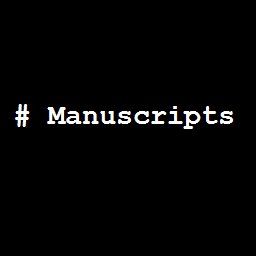Fragmentions - linking to any text
A couple of weeks ago, I went to a w3c workshop about annotations on the web. It was an interesting day, hearing from academics, implementers, archivists and publishers about the ways they want to annotate things on the web, in the world, and in libraries. The more I listened, the more I realised that this was what the web is about. Each page that links to another one is an annotation on it.
Tim Berners-Lee's invention of the URL was a brilliant generalisation that means we can refer to anything, anywhere. But it has had a few problems over time. The original "Cool URLs don't change" has given way to Tim's "eventually every URL ends up as a porn site".
Instead of using URLs, Google's huge success means that searching for text can be more robust than linking. If I want to point you to Tom Stoppard's quote from The Real Thing:
the search link is more resilient than linking to Mark Pilgrim's deleted post about it, which I linked to in 2011.I don’t think writers are sacred, but words are. They deserve respect. If you get the right ones in the right order, you can nudge the world a little or make a poem which children will speak for you when you’re dead.
Another problem is that linking in HTML is defined to address pages as a whole, or fragments within them, but only if the fragments are marked up as an id on an element. I can link to a blog post within a page by using the link:
http://epeus.blogspot.com/2003_02_01_archive.html#post-body-90336631
because the page contains markup:
<div class="post-body entry-content" id="post-body-90336631" >
But to do that I had to go and inspect the HTML and find the id, and make a link specially, by hand.
What if instead we combined these two ideas:
- use a fragment to identify part of a page
- mention words in the page as the identifier
I've named these "fragmentions"
To tell these apart from an id link, I suggest using a double hash - ## for the fragment, and then words that identify the text. For example:
http://epeus.blogspot.com/2003_02_01_archive.html##annotate+the+web id's cant have spaces in. For example:
http://epeus.blogspot.com/2003_02_01_archive.html#annotate%20the%20web
means "go to that page and find the words 'annotate the web' and scroll to show them"
If you click the link, you'll see that it works. That's because when I mentioned this idea in the indiewebcamp IRC channel, Jonathan Neal wrote a script to implement this, and I added it to my blog and to kevinmarks.com. You can add it to your site too.
However, we can't get every site to add this script. So, Jonathan also made a Chrome Extension so that these links will work on any site if you're running Chrome. (They degrade safely to linking to the page on other browsers).
So, try it out. Contribute to the discussion on the Indiewebcamp Fragmentions page, or annotate this page by linking to it with a fragmention from your own blog or website.
Maybe we can persuade browser writers that fragmentions should be included everywhere.
 Brent Longborough liked this 10 years ago
Brent Longborough liked this 10 years ago Julie Wills liked this 10 years ago
Julie Wills liked this 10 years ago Stephen Syputa liked this 10 years ago
Stephen Syputa liked this 10 years ago Darryl Drury liked this 10 years ago
Darryl Drury liked this 10 years ago Uwe Trottmann liked this 10 years ago
Uwe Trottmann liked this 10 years ago Christopher Ashton liked this 10 years ago
Christopher Ashton liked this 10 years ago Christopher Sisk liked this 10 years ago
Christopher Sisk liked this 10 years ago Scott Frey liked this 10 years ago
Scott Frey liked this 10 years ago Víctor R. Ruiz liked this 10 years ago
Víctor R. Ruiz liked this 10 years ago Jeffry Moxley liked this 10 years ago
Jeffry Moxley liked this 10 years ago Brad Acker liked this 10 years ago
Brad Acker liked this 10 years ago Marcia Conner liked this 10 years ago
Marcia Conner liked this 10 years ago Stephen Judd liked this 10 years ago
Stephen Judd liked this 10 years ago Marc Cooper liked this 10 years ago
Marc Cooper liked this 10 years ago Matthias Ott liked this 9 years ago
Matthias Ott liked this 9 years ago Aaron Gustafson 🚀 🕸 liked this 9 years ago
Aaron Gustafson 🚀 🕸 liked this 9 years ago bowerbird liked this 9 years ago
bowerbird liked this 9 years ago Manuscripts News reposted this 9 years ago
Manuscripts News reposted this 9 years ago Vienna.html liked this 9 years ago
Vienna.html liked this 9 years ago Jon Galloway liked this 9 years ago
Jon Galloway liked this 9 years ago Vedran Rudelj ≠ ☃ liked this 9 years ago
Vedran Rudelj ≠ ☃ liked this 9 years ago Cody Clark liked this 9 years ago
Cody Clark liked this 9 years ago Todd Carpenter reposted this 7 years ago
Todd Carpenter reposted this 7 years ago Katherine Moss reposted this 7 years ago
Katherine Moss reposted this 7 years ago Michael Tufekci
Michael Tufekci Darryl Drury
Darryl Drury Kevin Marks
Kevin Marks Kevin Marks
Kevin Marks Peter Müller
Peter Müller Suw
Suw Aaron Parecki
Aaron Parecki andrej stefanovski
andrej stefanovski Ross Goodman
Ross Goodman Chris Aldrich
Chris Aldrich William Rodriguez (billrod)
William Rodriguez (billrod) ThinkInBig
ThinkInBig Nicolas Hoizey
Nicolas Hoizey Kevin Marks
Kevin Marks James Duffy
James Duffy